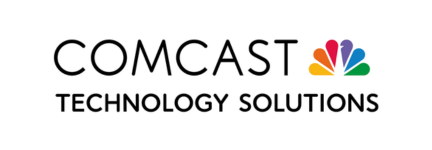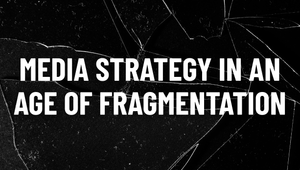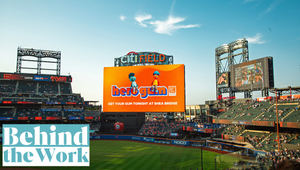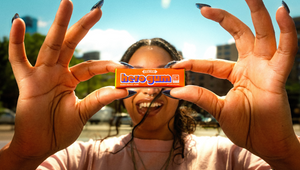
Production Line: Why It's All about Balance with Teri Altman

Teri has spent over two decades at DDB, as executive producer and, since 2020, as head of production. Throughout her tenure, Teri has led productions and teams across all mediums. Her DDB work includes projects for Kroger, Unilever, PepsiCo, Cotton Incorporated, Tribeca Film Festival, Henkel, Johnson & Johnson, Merck and more. Her production experience spans all sectors, including fashion & beauty, retail, soft drinks, packaged goods, and automotive.
No matter the medium, Teri welcomes the opportunity to positively impact and elevate ideas throughout the production process. She takes pride in the “yes-we-can” mindset of the production team she has helped create at DDB.
Outside of work Teri likes to write her own knitting patterns and knit big, comfy sweaters. When she’s not knitting, she’s usually out hiking with her husband, Rich, and her two pups, Jinx and Punch.
LBB> A good producer should be able to produce for any medium, from film to events to digital. Do you agree or disagree with this statement? Why/why not?
Teri> I agree! A good producer needs a working knowledge of all mediums. They can’t be daunted by the challenge of the unfamiliar. A producer gets it done - whatever the ‘it’ is. Figuring out how is the most exciting part of a job; it’s what all producers love sinking their teeth into. With that said, however, I don’t think we’ll ever get past needing our production specialists (art buying and print producers, experiential, digital, etc.) There’s tremendous value in having producers on the team whose expertise in a specific area is particularly honed and targeted. It’s one of the things that allows the production process to truly elevate the work. Sometimes a job may call for a ‘specialist’ and other times, producers might partner together to combine their ‘specialties’ to bring an idea to life. It’s always gratifying to see producers leaning into and learning from each other this way.
LBB> And leading on from that, when it comes to building up your team at the agency, what’s your view on the balance of specialists vs generalists?
Teri> It’s always just that: a balance. Of course, it’s great to have a team of producers who can do it all. But they are often unicorns (and I’m lucky enough to have a few!). I’ll always be on the lookout for them of course, but I’ll be very happy with the team of producers who can’t say no to a challenge and will always find a solution - efficiently, expertly, and with a level of craft that uplifts the work.
LBB> What’s your own pathway to production? When you started out, what sort of work were you producing and what lessons have stayed with you in that time?
Teri> I lucked into the best first job ever. I knew I loved production early on from an internship at public television station in school and then I landed a job as an assistant producer at an independent agency. I was doing radio commercials and producing small shoots within the first year. I was really blessed to be mentored by the finest producer talent I’ve ever known and surrounded by some truly legendary creative talent. Together they instilled in me the belief that production’s primary goal should be to elevate the idea through execution. What and how we make things has evolved over the years, but great ideas are great ideas and the opportunity to have an impact on them will always excite me.
LBB> When working with a new partner or collaborator, how do you go about establishing trust?
Teri> I’m honest. I tell the truth about expectations for the creative and for the budget and I expect that I’ll get the same in the return. I usually do. If you and your partner know at the beginning of a project that your goals are aligned, even if they are not the same, then the bumps are usually minimal. Sure, it can be a leap of faith when working with someone new, but it’s also exciting and the rewards are usually worth it.
LBB> What conversations are you having with clients about issues such as diversity and sustainability? Is it something that clients are invested in or more that agencies need to take the lead on?
Teri> We are at the point now where all clients are invested in and insistent on both. And we are lucky to have clients that are as passionate as we are. In terms of production, it’s just expected, internally and externally, that we are bringing potential partners to the table with whose priorities are focused on diversity. Our bidding pools on all our productions are diverse. It’s second nature for us. What makes DDB such a great partner for our clients on these issues is that we embody this commitment - DDB has built an incredibly diverse team that goes all the way up through our leadership. It’s been an inspiring evolution to be part of and I’m incredibly proud to be a part of DDB, where we are truly walking the walk of DEI.
LBB> And what advice would you give to an aspiring agency producer?
Teri> Never be afraid to say, ‘I don’t know.’ There’s no shame in not knowing. The absolute worst thing any producer can do is pretend to know and then get it wrong. ‘I don’t know’ is so easily followed by “... but I’ll figure it out”. Ask tons of questions, talk to people, and follow up with more questions. It’s the questions and the paths they take you down that will keep this the most interesting and most exciting job you’ll ever have.
LBB> How have you approached integrating data with production workflows and processes? And, generally, how has data and the fact that we have constant live feedback on content performance changed production?
Teri> Overall, the data and insights that inform the work are allowing us to make content that really resonates with consumers and it’s just becoming more robust and more frequent in all our productions. An iterative production process allows us to make updates to work in response to performance in real time with our clients. Obviously, we’ve had to adapt and become nimbler. Refreshes on current work are faster and more precise. For social content, we rely heavily on our internal content studio, The Works, where can create work in real time based on cultural trends and/or social listening opportunities. We have production capabilities and makers embedded within each of the production departments across our North American network and we share resources, which makes us all more responsive.
And of course, producers and production are always evolving; that’s just the nature of who we are. We are building our calendars and budgets differently; we ourselves are integrating into the creative process much earlier. Production has a seat at the table very early on so that we can make the entire process work better. And by doing so, we can make work that hits the consumer at the right times, and - more and more often - in unexpected spaces, like brand acts and activations.















